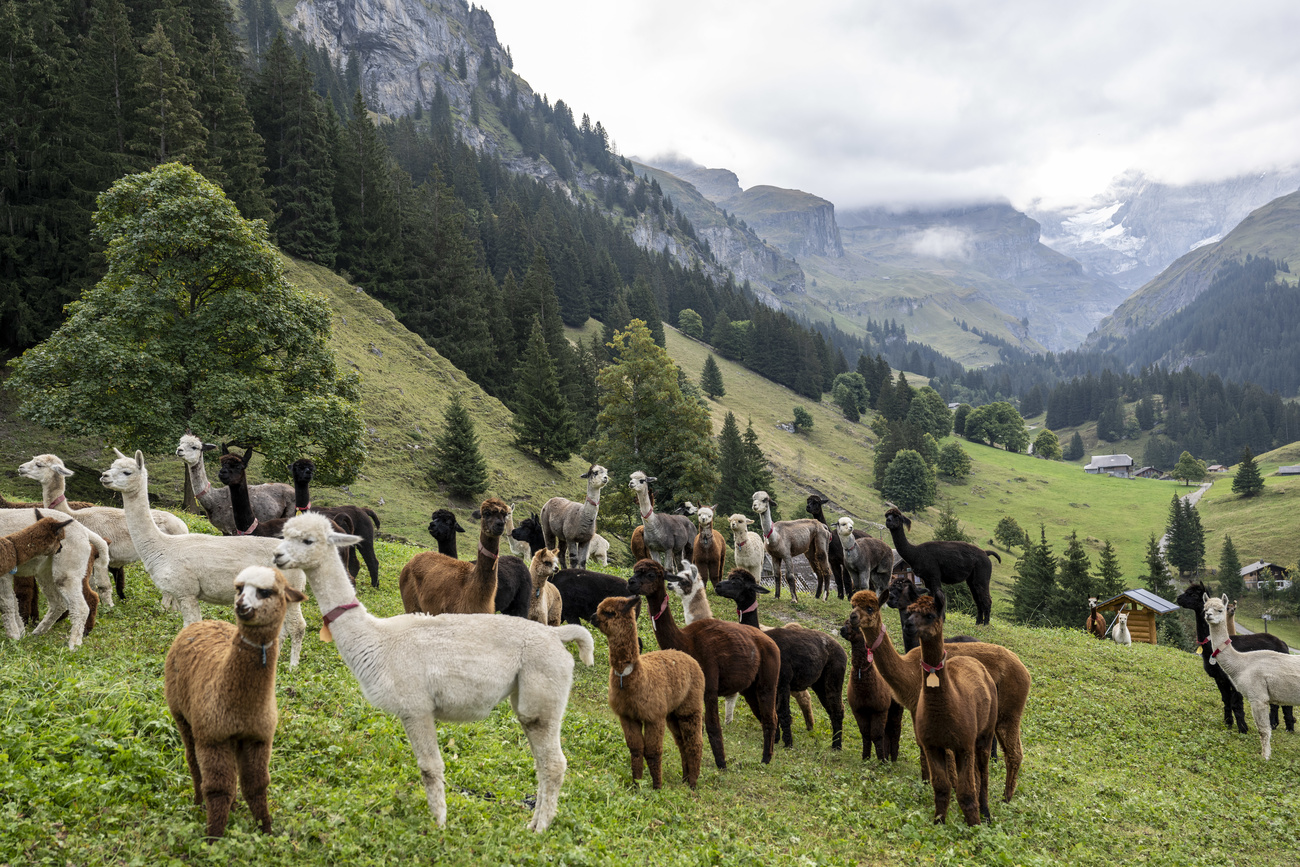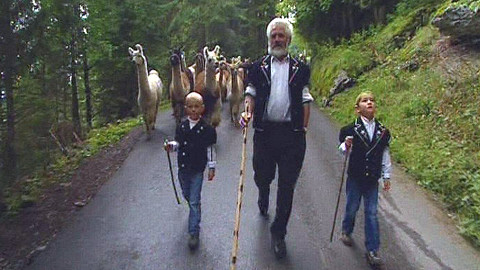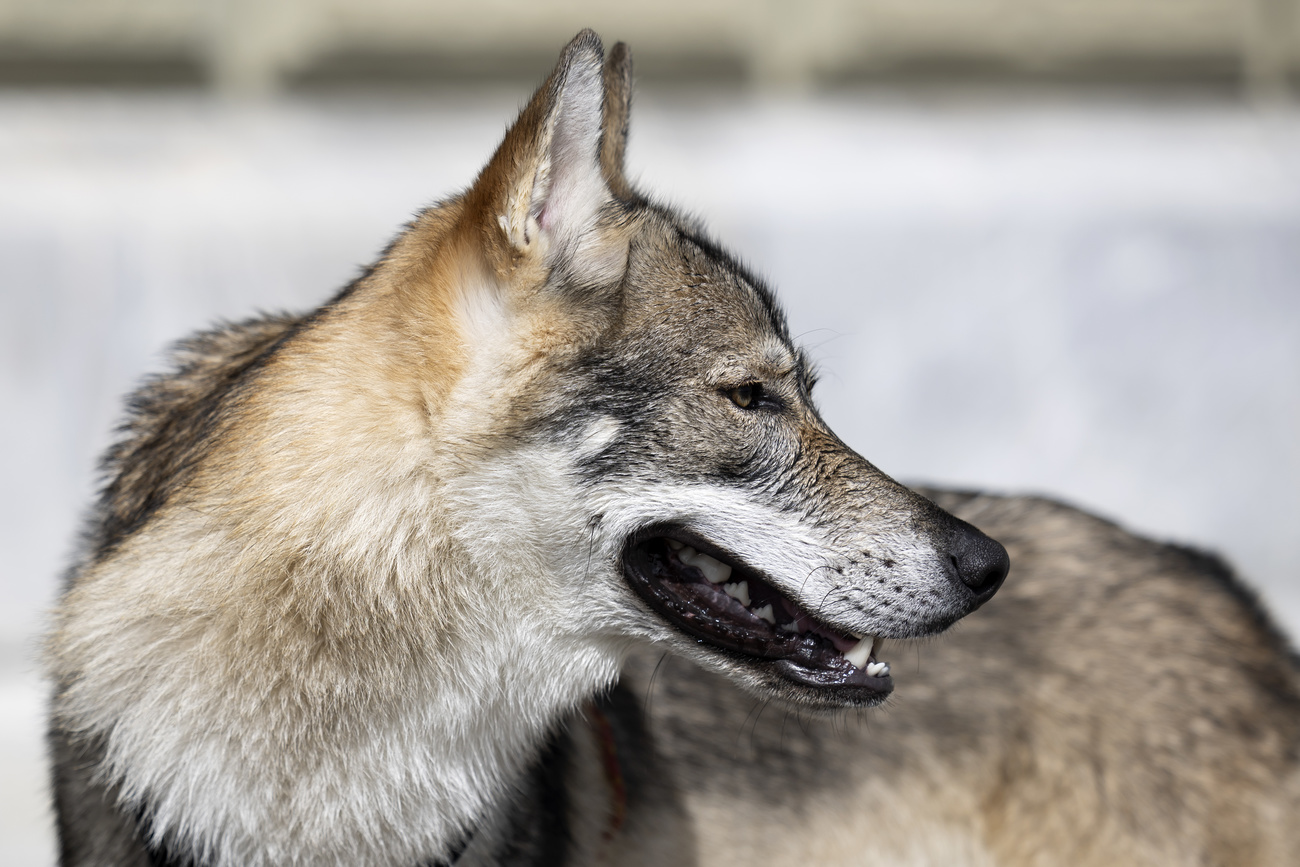Three alpacas killed by wolf in Switzerland

A wolf has killed three alpacas in canton Thurgau, northeastern Switzerland. The canton is considering issuing a licence to shoot the wolf, saying the legal requirements for this have been met.
Two alpacas were killed in Dussnang by an animal early on Thursday morning, while a third had to be euthanised due to its injuries, canton Thurgau wrote in a statement on Friday.
Analysis of the bite marks indicated that there was a high probability that the predator had been a wolf. Employees of the Thurgau hunting and fishing administration had secured DNA samples in an attempt to identify the individual animal. Roman Kistler, head of the hunting and fishing administration, told the Swiss News Agency Keystone-SDA that it was assumed to have been a single predator.
The alpacas had been in a pasture fenced with wires, Kistler said. Farm animal owners were advised to take appropriate measures to protect their livestock.

More
Alpacas in the Alps
Three wolves detected in Thurgau since 2017
Livestock owners in neighbouring canton Zurich were also informed of the situation on Thursday via an SMS alert.
Three different wolves have been detected in canton Thurgau since 2017. Two left the cantonal territory after a short time, while the third wolf was killed in February 2020 due to severe illness. A presumed fourth animal in May 2022 could not be genetically confirmed, according to the press release.

More
Wolves in Switzerland: more numerous but less deadly in 2023
Adapted from German by DeepL/kc/ts
This news story has been written and carefully fact-checked by an external editorial team. At SWI swissinfo.ch we select the most relevant news for an international audience and use automatic translation tools such as DeepL to translate it into English. Providing you with automatically translated news gives us the time to write more in-depth articles.
If you want to know more about how we work, have a look here, and if you have feedback on this news story please write to english@swissinfo.ch.

In compliance with the JTI standards
More: SWI swissinfo.ch certified by the Journalism Trust Initiative
You can find an overview of ongoing debates with our journalists here. Please join us!
If you want to start a conversation about a topic raised in this article or want to report factual errors, email us at english@swissinfo.ch.